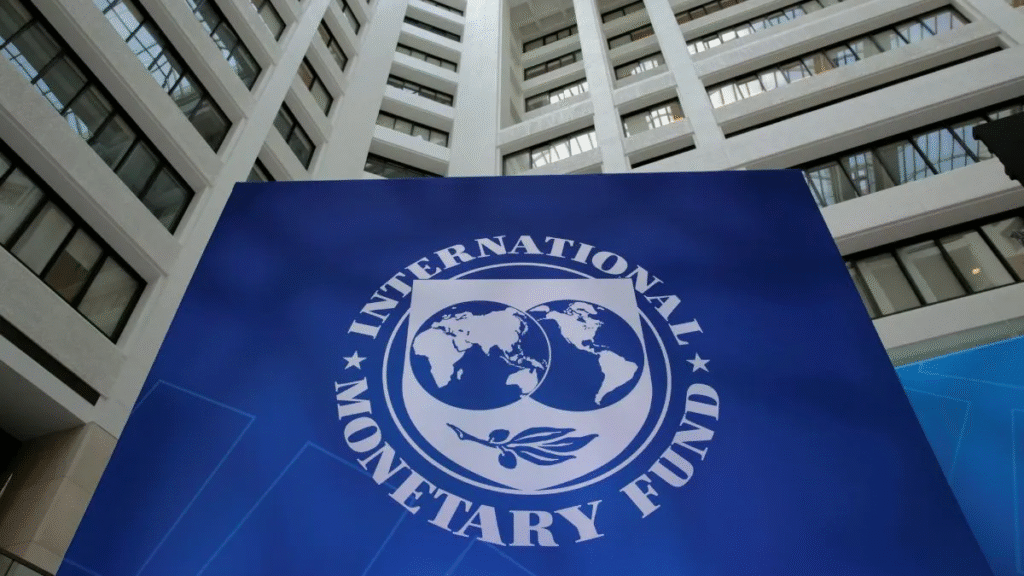The IMF defends releasing $1 billion to Pakistan despite India’s concerns over terror funding. India terms the move a serious threat to global values and security.

New Delhi/Islamabad, May 23, 2025 — Amid escalating tensions between India and Pakistan, the International Monetary Fund (IMF) has come under fire for releasing a fresh $1 billion (approx. ₹8,500 crore) loan tranche to Islamabad, despite strong objections from New Delhi. India, voicing serious concerns, slammed the move as “indirect funding of terrorism” and warned that it undermines the credibility of international institutions.
The IMF justified the decision, stating that Pakistan had met all structural reform benchmarks under its $7 billion Extended Fund Facility (EFF). However, the timing of the disbursement has raised diplomatic alarms, especially after India’s recent anti-terror military operation, Operation Sindoor, which targeted terror hubs in Pakistan and Pakistan-Occupied Kashmir (PoK).
IMF Clarifies: “Funds Not for Government Spending”
Speaking at a press briefing, IMF Communications Director Julie Kozack defended the move. “Pakistan has fulfilled the reform commitments required under the program. The Executive Board approved the release of the $1 billion tranche on May 9 based on measurable progress,” Julie Kozack said.
She further clarified that all IMF funds are deposited directly into the State Bank of Pakistan, not the government treasury. “These funds are strictly used to manage balance of payment challenges. Central bank lending to the government remains prohibited,” Kozack added.
The IMF also emphasized its robust review and monitoring mechanisms, asserting that future installments would depend on the fulfillment of 11 newly imposed conditions, including:
- Approval of Pakistan’s Rs 17.6 trillion federal budget.
- Hike in electricity debt servicing surcharge.
- End to restrictions on used car imports (older than 3 years).
- Enactment of the captive power levy ordinance into permanent law.
- Phasing out Special Technology Zone incentives by 2035.
- Creation of a long-term financial strategy until 2027 and beyond.
India’s Staunch Opposition: “A Blow to Global Values”
India abstained from voting at the IMF board meeting, taking a firm stand against what it views as a flawed and risky decision. Defence Minister Rajnath Singh described the IMF aid as “aiding and abetting terrorism through financial channels.”
A senior Indian diplomat stated: “Rewarding Pakistan with fresh funds despite its continued sheltering of terror operatives sends a deeply problematic message to the international community. It makes global financial watchdogs complicit and damages their reputations.”
India has long maintained that Pakistan has repeatedly violated past IMF agreements and failed to bring about genuine macroeconomic stability. Since 2019, Pakistan has entered into four separate IMF programs — none of which have achieved lasting reforms or fiscal discipline.
Geopolitical Implications: Aid at the Cost of Accountability?
Experts say this financial support comes at a precarious time. India’s Operation Sindoor was launched in response to intensified cross-border firing and intelligence indicating Pakistan-backed terror activity near the Line of Control (LoC). In this context, the IMF’s decision is not just an economic matter but a political one — with deep implications for regional peace and international accountability.
Despite IMF assurances, global watchdogs and strategic analysts argue that without strict on-ground compliance and transparency, such funds risk being diverted indirectly into sustaining terror ecosystems.
Aid or Alarm?
While the IMF stands by its decision citing technical compliance by Pakistan, India’s apprehensions remain unresolved. As geopolitical tensions rise, the question looms large — Can international institutions afford to ignore the ground realities in the name of economic recovery?
